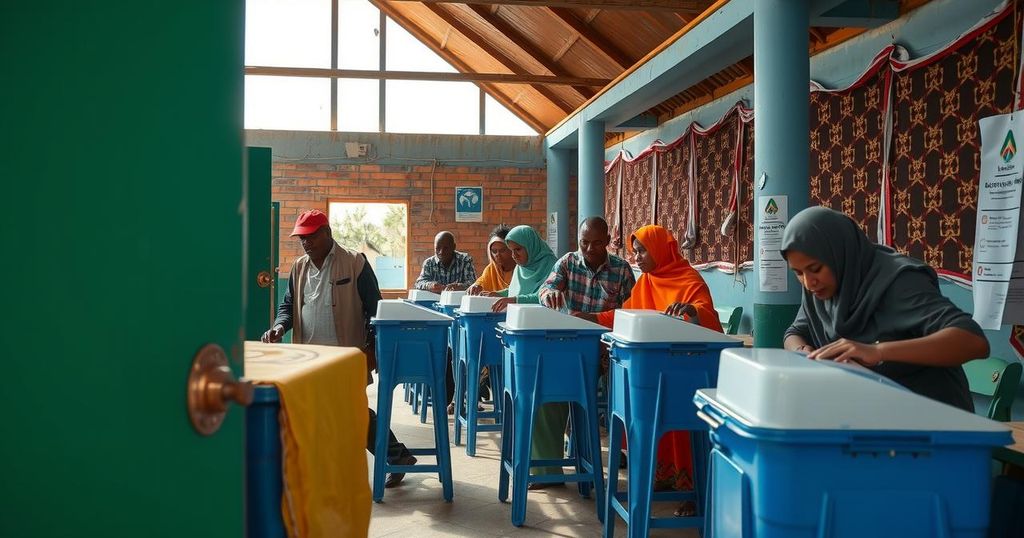Voting Underway in Somaliland’s Presidential Election Amid Tensions

Voting is currently taking place in Somaliland for a crucial presidential election that has seen a two-year delay. Over 1 million voters are expected to participate, with candidates focusing on economic reform and national unity amidst regional tensions. Incumbent President Muse Bihi Abdi seeks reelection amid calls for international recognition, while opposition candidates advocate for democratic reforms and social cohesion.
On November 13, 2024, voting commenced in Somaliland, a self-declared independent region of Somalia, in a significant presidential election that had been postponed for two years. Voters expressed their desires for economic improvement and job opportunities as they cast their ballots across over 2,000 polling stations. Approximately 1 million voters are anticipated to participate, with 28 international observers monitoring the electoral process. Incumbent President Muse Bihi Abdi of the ruling Kulmiye Party is vying for a second term, having led the region for seven years and advocating for Somaliland’s international recognition. Conversely, his opponent Abdirahman Mohamed Abdullahi from the Waddani Party is campaigning for democratic reforms, while Faisal Ali Warabe from the Justice and Welfare Party promotes national unity. Somaliland has developed its own government and security infrastructure since declaring independence from Somalia in 1991, and it has maintained a relatively stable political environment in stark contrast to Somalia’s ongoing challenges with security and governance. The region’s economic hardships contributed to the 2022 postponement of the presidential election. Tensions have also surged with the recent agreement between Somaliland and Ethiopia, which grants the former access to the Indian Ocean in exchange for recognition. This agreement has been criticized by Somalia, raising concerns about territorial integrity and regional governance.
Somaliland, having declared independence from Somalia amidst violent conflict in 1991, operates its own political, monetary, and security systems despite lacking widespread international recognition. Its political stability has sharply contrasted with the precarious situation in Somalia, highlighting Somaliland’s unique standing in the Horn of Africa. The delayed election process underscores ongoing economic challenges while reflecting the importance of electoral integrity and citizen participation in governance. Furthermore, Somaliland’s recent diplomatic developments with Ethiopia have introduced another layer of complexity to its relations with Somalia.
The presidential election in Somaliland represents a pivotal moment for the region as it navigates its aspirations for international recognition and economic development. With significant voter participation anticipated and a range of political platforms being advocated, the election results could profoundly influence Somaliland’s future trajectory. Observers will closely watch this election to assess both its electoral processes and broader implications in the Horn of Africa.
Original Source: apnews.com








